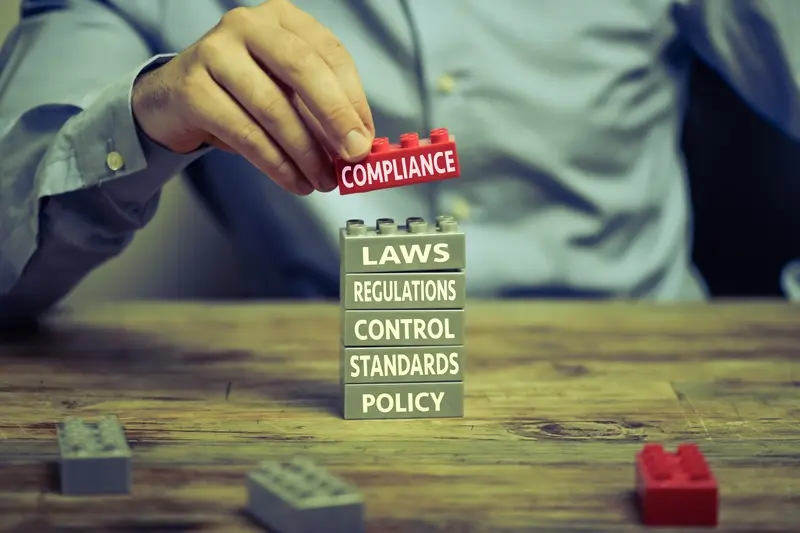What Contract Terms Protect You When Hiring App Developers?
A logistics company decided they needed an app to help their drivers track deliveries and manage routes more efficiently. They found what seemed like the perfect development team, agreed on a price, and started work with just a handshake deal. Six months later, the app was half-finished, the developers had vanished with most of the payment, and the company discovered they didn't even own the code that had been written. This kind of nightmare happens more often than you'd think in the app development world.
When you're hiring app developers, you're not just buying a product—you're entering into a complex relationship that involves your business ideas, sensitive data, and often substantial sums of money. Without proper contract terms in place, you're basically flying blind. I've seen brilliant app ideas go completely off the rails because someone thought a simple agreement would be enough to protect their interests.
The right contract terms don't just protect you from disaster; they create a framework for success that benefits everyone involved in the project.
App developer contracts aren't just legal paperwork that sits in a drawer. They're your roadmap for the entire development process, defining everything from who owns what to how problems get solved when things go wrong. And trust me, things will go wrong at some point—that's just the nature of complex technical projects. The question is whether you'll have the legal protections in place to handle those challenges professionally, or whether you'll find yourself in a costly dispute that could have been avoided with better contract terms from the start.
Understanding Developer Contracts
Right, let's talk about developer contracts—because honestly, this is where I see most clients make their biggest mistakes. You wouldn't buy a house without reading the paperwork, but I've watched people hand over tens of thousands for app development with barely a glance at the contract terms.
A proper developer contract isn't just legal jargon; its your roadmap for the entire project. It sets expectations, defines responsibilities, and most importantly, protects your investment when things go sideways. And trust me, something always goes sideways in app development—that's just the nature of building software.
What Makes a Good Developer Contract
After working on hundreds of projects, I've learned that the best contracts balance protection with flexibility. They need to be detailed enough to prevent disputes but flexible enough to handle the inevitable changes that come up during development. You see, apps aren't like building a wall—requirements evolve as you learn more about your users needs.
The strongest contracts I've seen include these key elements:
- Clear definition of what you're actually getting (and what you're not)
- Detailed payment schedule tied to specific milestones
- Explicit ownership rights for your app and its code
- Process for handling changes and additional work
- Quality standards and testing requirements
- Timeline expectations with realistic buffers
- Dispute resolution procedures
But here's the thing—a contract is only as good as the developer behind it. I've seen beautifully written contracts with terrible developers, and simple agreements with brilliant teams who deliver outstanding work. The contract protects you, but choosing the right developer matters even more.
Essential Legal Protections
Right, let's talk about the legal bits that'll save your bacon when things go wrong. I know, I know—legal stuff isn't exactly thrilling, but trust me on this one. After dealing with my fair share of project disasters over the years, I can tell you that proper legal protections are what separate a minor hiccup from a complete nightmare.
The biggest mistake I see clients make? Thinking a handshake and a casual email thread will cut it. It won't. You need proper contracts with specific protections built in, and here's what absolutely must be covered.
Liability and Indemnification Clauses
This is where things get a bit technical, but basically you want clauses that protect you if the app causes problems. What happens if there's a security breach? What if the app crashes and costs your business money? A good contract will limit the developer's liability to a reasonable amount—usually the project cost—and include indemnification clauses that protect you from third-party claims.
Never accept unlimited liability clauses. Most reputable developers will cap their liability at the project value, which is fair for both parties.
Confidentiality and Data Protection
Your app idea, user data, business processes—all of this needs protecting. The contract should include robust confidentiality clauses that prevent developers from sharing your information or working with direct competitors during and after the project.
With GDPR and other privacy laws, you also need clauses covering how personal data will be handled during development and testing. The developer should agree to follow data protection laws and delete any test data after project completion.
- Non-disclosure agreements covering all project details
- Data handling and deletion procedures
- Restrictions on working with competitors
- Security protocols for accessing your systems
- Liability caps and indemnification terms
Right, let's talk about intellectual property—the bit that keeps me up at night when I see badly written contracts! I've watched too many clients get burned because they didn't nail down who owns what once the app is built.
Here's the thing that catches most people out: just because you're paying for an app doesn't automatically mean you own everything. Mental, isn't it? But that's how IP law works. Without clear contract terms, your developer might retain rights to the code, designs, or even the core functionality of your app.
What You Must Own Outright
Your contract should explicitly transfer ownership of these elements to you:
- All custom code written specifically for your app
- Design elements, including UI/UX designs and graphics
- App concept and functionality (where legally possible)
- Any databases or content management systems created
- Marketing materials and app store assets
But here's where it gets tricky—developers often use third-party libraries, frameworks, or their own pre-existing code. You can't own these bits, obviously. Your contract should clearly separate what becomes yours versus what remains theirs or belongs to someone else.
I always insist on "work for hire" clauses in contracts. This means anything created during the project automatically belongs to you as the client. It's cleaner than trying to transfer ownership after the fact.
Don't forget about the data side of things. Your contract should specify that any business information, user data, or proprietary processes shared during development remain confidential and can't be used elsewhere. I've seen developers accidentally leak competitive advantages simply because the contract didn't cover it properly. It's also worth considering whether you need to trademark your app name before development starts to protect your brand from the outset.
Project Scope and Deliverables
Getting the project scope right is absolutely critical—and I mean that. I've seen more developer relationships go sour over unclear deliverables than any other single issue. Your contract needs to spell out exactly what you're getting, when you're getting it, and what it should do when you get it.
Start with the basics: what platforms are we building for? iOS only, Android only, or both? What devices do we need to support? Are we talking about phones, tablets, or maybe even Apple Watch compatibility? These details matter more than you might think, because each platform and device type adds complexity (and cost) to your project.
Define Every Feature Clearly
Here's where things get tricky—you need to document every single feature your app will have. Not just the big ones like user registration and payments, but the smaller stuff too. Push notifications? Social media sharing? Offline functionality? Camera integration? Write it all down. If it's not in the contract, don't expect it to appear in your finished app.
The most successful client relationships I've had always start with contracts that leave nothing to assumption—both parties know exactly what success looks like from day one.
Make sure your contract includes wireframes or mockups as official deliverables. These visual guides should be approved before any coding begins. I always insist on this because it prevents that awkward conversation later where the client says "this isn't what I had in mind" and I'm thinking "but this is exactly what we discussed!"
Technical Specifications Matter
Don't forget the technical stuff—your contract should specify things like minimum iOS and Android versions, performance requirements, and any third-party integrations. Will your app need to connect to your existing CRM system? Does it need to handle thousands of users or just hundreds? These details shape the entire development approach, so get them locked down early.
Payment Terms and Milestones
Getting your payment structure right is absolutely critical when working with app developers. I mean, nobody wants to hand over a massive cheque upfront and then watch their project disappear into development hell, right? The key is setting up milestone-based payments that protect both you and your development team.
Most reputable agencies work on a milestone payment system—and honestly, if they're asking for everything upfront, that's a red flag. You should expect to pay around 20-30% to get started, then smaller chunks as specific deliverables are completed. This keeps everyone motivated and gives you leverage if things go sideways.
Typical Payment Structure
- Project kickoff and discovery phase (25-30%)
- Design approval and wireframes complete (20-25%)
- Core functionality development milestone (25-30%)
- Beta version delivery and testing (15-20%)
- Final delivery and app store submission (5-10%)
Here's the thing though—make sure each milestone has clear, measurable deliverables attached. "Development progress" isn't good enough; you want specifics like "user registration system fully functional" or "payment integration tested and working." Vague milestones lead to arguments later.
Also, build in some protection for late payments on both sides. If the developer misses a milestone by more than two weeks (without good reason), you should have the right to withhold payment until its delivered. But equally, if you're slow to approve designs or provide feedback, that shouldn't penalise the development timeline.
One last tip—never agree to final payment until you've had at least a week to properly test everything. Trust me on this one; bugs have a funny way of appearing right after you've signed off!
Timeline and Deadline Clauses
I've seen more projects go sideways because of poorly written timeline clauses than almost any other contract issue. And honestly, it's usually because both sides make the same mistake—they treat deadlines like they're set in stone when app development is anything but predictable.
Here's the thing about timelines in mobile development agreements: they need to be realistic and flexible. I mean, you can't just say "deliver the app in 12 weeks" and call it a day. What happens if Apple releases a new iOS version that breaks everything? What if you discover halfway through that a key feature needs complete rethinking?
The best timeline clauses I work with include buffer periods and milestone-based deadlines rather than one big final date. You want something like "Phase 1 completion within 4-6 weeks of approved designs" not "entire app delivered by March 15th." This approach protects both you and your developer from unrealistic expectations.
Always include a clause that pauses timelines when you're reviewing deliverables or providing feedback. If you take two weeks to approve wireframes, that's two weeks that shouldn't count against your developer's deadline.
What Should Your Timeline Clause Include?
- Specific milestone dates with reasonable buffers
- Clear definition of what triggers timeline pauses
- How external factors (App Store reviews, third-party integrations) affect deadlines
- Consequences for missed deadlines—but make them fair
- Process for timeline adjustments when scope changes
Remember, the goal isn't to create a rod for anyone's back. Its about setting realistic expectations that actually help your project succeed. A good timeline clause should feel collaborative, not punitive—because the best apps come from partnerships, not adversarial relationships.
Quality Standards and Testing
Setting clear quality expectations isn't just about avoiding headaches—it's about protecting your investment. I've seen too many projects where the client thought "testing" meant the developer clicked through the app once on their phone. That's not testing, that's wishful thinking!
Your contract should specify exactly what testing will happen and who's responsible for it. Unit testing, integration testing, user acceptance testing—these aren't fancy buzzwords, they're the safety nets that catch problems before your users do. Make sure the contract states that the app will be tested across different devices, operating system versions, and network conditions. Because trust me, your app might work perfectly on the developer's latest iPhone but crash spectacularly on an older Android device.
Performance Standards That Matter
Don't just say "the app should be fast"—define what fast means. Load times under three seconds? Smooth animations at 60fps? Battery usage that won't drain your phone in an hour? These specifics should be written into your contract because "fast enough" means different things to different people.
Bug fixing responsibility is another area where you need clarity. Who pays for fixes after delivery? What's considered a bug versus a new feature request? I always recommend including a warranty period where critical bugs get fixed at no extra cost.
- App store submission requirements and approval process responsibility
- Performance benchmarks for loading times and responsiveness
- Device compatibility requirements across different models
- Security testing and vulnerability assessments
- User acceptance testing procedures and sign-off criteria
The bottom line? Quality standards protect both sides. They give you recourse if the app doesn't meet expectations, and they give developers clear targets to hit. Nobody wins when quality is left to guesswork.
Handling Changes and Disputes
Let's be honest—no matter how well you plan your mobile app project, changes are going to happen. I've never worked on a project where the client didn't want to adjust something halfway through development. Maybe they've seen a competitor's new feature, or user feedback has shifted their priorities. That's completely normal in our industry.
The key is having a proper change request process written into your contract. Without this, you'll find yourself in a right mess when your developer starts charging for every tiny modification. A good contract should specify exactly how changes get requested, approved, and priced. Most developers charge change requests at an hourly rate—make sure that rate is clearly stated upfront, not left for later negotiation.
Dispute Resolution Without the Drama
When disputes arise (and they sometimes do), you don't want to end up in court spending more on legal fees than your entire app budget. Smart contracts include escalation procedures that start with direct discussion, then move to mediation before considering legal action. I always recommend including a cooling-off period too—emotions run high in development projects, but most issues can be sorted with a proper conversation.
A well-structured change management process protects both parties from scope creep while maintaining project flexibility
Make sure your contract covers what happens if the relationship breaks down completely. Who owns the code written so far? How do you get access to your project files? Can you take the work to another developer? These aren't pleasant topics to discuss, but sorting them out beforehand saves massive headaches later. Trust me, I've seen too many projects get held hostage because these details weren't covered properly in the original agreement.
Conclusion
Getting your app developer contract right isn't just about protecting yourself from the worst-case scenarios—it's about setting everyone up for success from day one. I've seen too many projects go sideways because people skipped the boring legal stuff and jumped straight into the fun technical discussions. Trust me, sorting out contracts properly at the start saves you months of headaches later.
The key things to remember? Make sure you own your intellectual property outright, get everything about project scope written down in painful detail, and structure your payments around clear milestones. Don't let anyone tell you that "we'll figure it out as we go"—that's developer speak for "this is going to cost you more money." Also, build in proper quality standards and testing requirements; you'd be surprised how many contracts forget to mention that the app should actually work!
Look, I know contracts aren't the most exciting part of app development. But think of them as insurance for your project—you hope you'll never need the protection they provide, but you'll be bloody grateful to have it if things go wrong. A good contract protects both you and your developer, sets clear expectations, and gives everyone a roadmap to follow when decisions need to be made.
The mobile app industry moves fast, but good business practices never go out of style. Take the time to get your contracts right, ask questions when something doesn't make sense, and don't be afraid to negotiate terms that work for your specific situation. Your future self will thank you for doing the groundwork properly.
Share this
Subscribe To Our Learning Centre
You May Also Like
These Related Guides

What Happens to Your IP When Developers Leave Your Project?

Which Documents Keep Your App IP Safe During Development?



